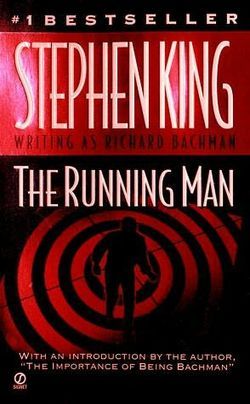 This nasty story from future could only have been written by a nasty man from the past, 1980s Stephen King. This was back in the day when he didn’t care, when he broke rules, when he threw “faggot” and “nigger” around liberally, and when he wasn’t pants-wettingly anxious about being a remembered as a Great American Author. He was already something far better than that: a good writer.
This nasty story from future could only have been written by a nasty man from the past, 1980s Stephen King. This was back in the day when he didn’t care, when he broke rules, when he threw “faggot” and “nigger” around liberally, and when he wasn’t pants-wettingly anxious about being a remembered as a Great American Author. He was already something far better than that: a good writer.
He was considered trash at the time. But even if he was, he was a unique kind of trash that defies obvious and easy comparison. Ray Bradbury wishes he was this pissed off. Harlan Ellison wishes he was this coherent. Dean Koontz wishes he was this misanthropic. Apparently the entire book was written over the course of a week, which works just fine – he doesn’t have the chance to get snarky and arch and clever-clever.
The plot is familiar to all, and honestly, not all that sensible. At one point, he moves the story to its next junction by giving the main character a supernatural vision. Then at the end, King can’t figure out what to do, so he blows everyone up. But the story always seemed secondary to The Running Man. The real star is King’s gritty, quasi-cyberpunk world, which he shows off through flashbacks, monologues, and those unexpected shots across the bow King is so good at. A good example of the latter is when the main character meets a woman with full breasts, and concludes she must be corrupt or criminal (because she’s eating well.)
The pace is breakneck. You’re afraid to stop reading because you might get whiplash. The book simply doesn’t have a dull or boring moment, from the man’s run-in with gangsters with hearts full of gold (and lungs full of cancer), to the incredible high-stakes bluffing game at the airport, to the final catastrophic flight to the FreeVee offices. It’s impossible that an out of work every-man could be this good at outshooting and outwitting trained killers, but the relentless pace of the book quashes these objections in your mind. You can’t smell a fart when they’re travelling at Mach 3.
This is one of those “look at me” books that does anything for your attention, and tries to be bigger and louder than a movie. A comparison to Ellison seems appropriate here, because he’s also known for doing anything in his stories for the sake of holding a punter’s attention. But unlike Ellison, King doesn’t seem to have Narcissistic personality disorder, so I don’t know what his excuse is.
This is the best Bachman book (although Misery would have edged it out, had it been released under that name), and probably the darkest and grittiest of King’s novels. 1984 pastiches are dull and overfamiliar these days, and so are cautionary tales about couch potatoes and reality TV, but The Running Man still scorches and sizzles on the page. This isn’t a maudlin, sentimental old man who writes with his literary reputation first and foremost in mind. This is 1980s Stephen King. Don’t walk, run.
No Comments »
Comments are moderated and may take up to 24 hours to appear.
No comments yet.
